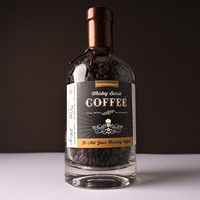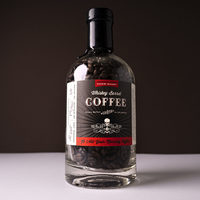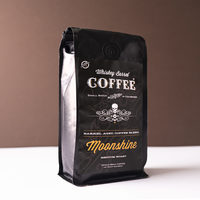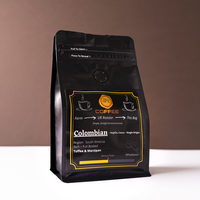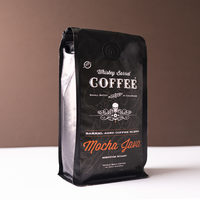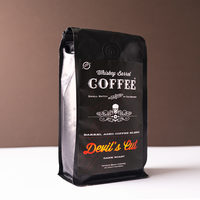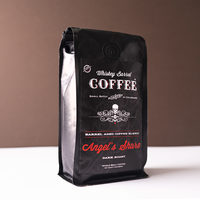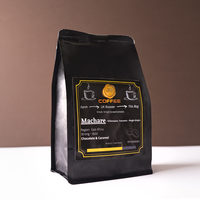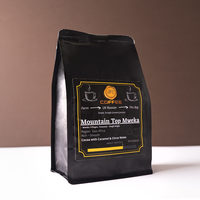Description
Key Flavour Notes
What grind size do I need?
How to store
Our premium micro-lot Peru appreciates the effort of the farmers to produce the best quality coffee they can, exporting it directly to customers. The farmers of Amoju are a family that seeks the common interest before their own and therefore rely on the support of institutions such as Algrano, which with transparency and honesty help so many farmers from different countries to market their coffee directly and are able to have a benefit that allows development as a family, as an institution and as farmers. Being one of Peru’s top rising exporters of coffee, buyers are aware of this and flock to neighbouring Amazonas in search for 80 – 84+ scoring (certified) coffees. This cooperative consists of 340 growers, of which more than 20% are women, located on the left bank of the Maranon River in Peru. Producers have been dedicated to the production of coffee with practices that mitigate climate change since their founding in2016. The entire process of coffee production is completed on the producers’ 3-5 hectare farms. The best nursery grown seedlings are selected to be planted, seeds of good quality and high germination power is vital. Special care is taken during the de-pulping stage to remove the skin and mucilage, it is never done on the day of harvest. The beans are fermented using two different methods of wet or washed and in Yukamama, they try to minimise the use of water during the whole process. The region is beautifully diverse, aside from the more traditional flavours of a Peruvian coffee such as caramel and cacao, in this particular coffee you will be able to find berries and prunes. This is a result of Cajamarca’s unique micro-climates and these heights offer valuable breeding grounds for coffee trees. The cup speaks for itself, often finding deep sweetness profiles within a rich body. This Peru coffee can offer a delicate yet mouth-watering sweetness; hints of dry apricot appear with a fruity and yellow plum like acidity.
Location: Cajamarca Region, Amazonas – Peru Altitude: 1400 – 1900
Species: Arabica
Process: Washed
Wholebean
Best For: Grinding at home
Very Coarse
Best For: Cold-Brew, Cowboy-Coffee
Coarse
Best For: French press/cafetière, percolators
Medium
Best For: Chemex, drip coffee makers, siphon brewers.
Medium-Fine
Best For: cone-shaped pour-overs, Moka Pot, vacuum brewers, AeroPress
Fine
Best For: Espresso machine, Moka pot
Very-Fine
Best For: Turkish.
Storing roasted coffee beans properly is important to maintain their freshness and flavour. Here are some tips on how to store roasted coffee beans:
-
Keep them in an airtight container: Exposure to air is one of the biggest enemies of coffee beans, as it can cause them to go stale quickly. Store your roasted coffee beans in an airtight container to prevent air from getting in.
-
Store in a cool, dry place: Roasted coffee beans are best stored in a cool, dry place away from direct sunlight, moisture, and heat. The ideal storage temperature for roasted coffee beans is between 50-70°F (10-21°C).
-
Avoid storing in the fridge or freezer: While some people may suggest storing coffee beans in the fridge or freezer to prolong their freshness, this is not recommended. The moisture and temperature fluctuations in the fridge or freezer can actually damage the coffee beans and affect their flavour.
-
Use the beans within 6 months: Roasted coffee beans are best consumed within 2-4 weeks of roasting for optimal flavour, as their flavour and freshness can deteriorate over time. It's best to buy smaller quantities of coffee beans depending on your consumption rate and use them within this timeframe to ensure the best quality and taste.
By following these tips, you can help preserve the freshness and flavour of your roasted coffee beans and enjoy a delicious cup of coffee every time.
if they are not stored properly. When coffee beans are exposed to air, moisture, heat, or light, they can lose their flavour and freshness and become stale. Stale coffee beans can taste flat, sour, or bitter and may not produce the same rich aroma and flavour that fresh coffee beans do.
In summary, while coffee beans do not necessarily "go bad" in the way that some foods do, they can certainly lose their quality over time, affecting the taste and freshness of your coffee.



